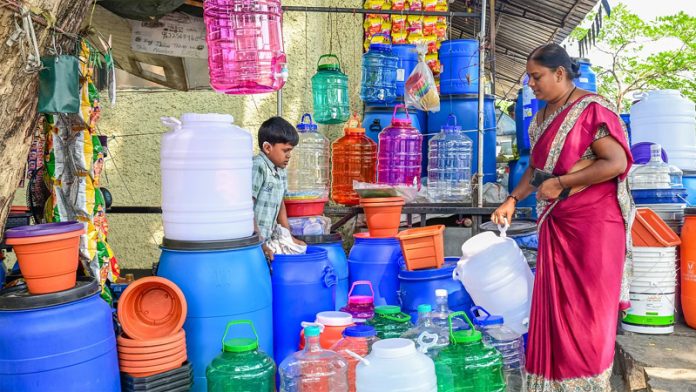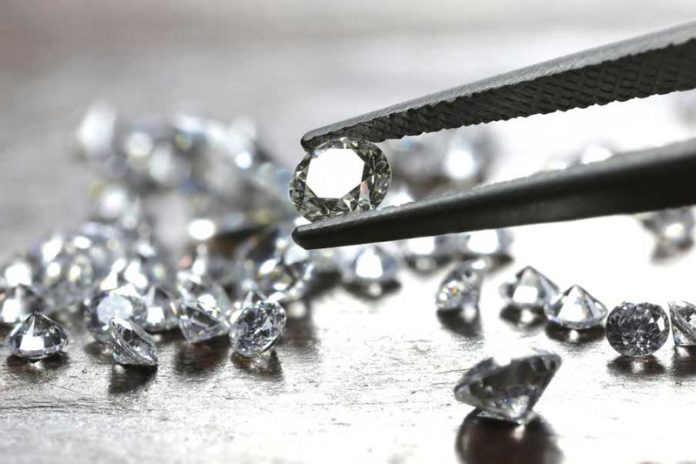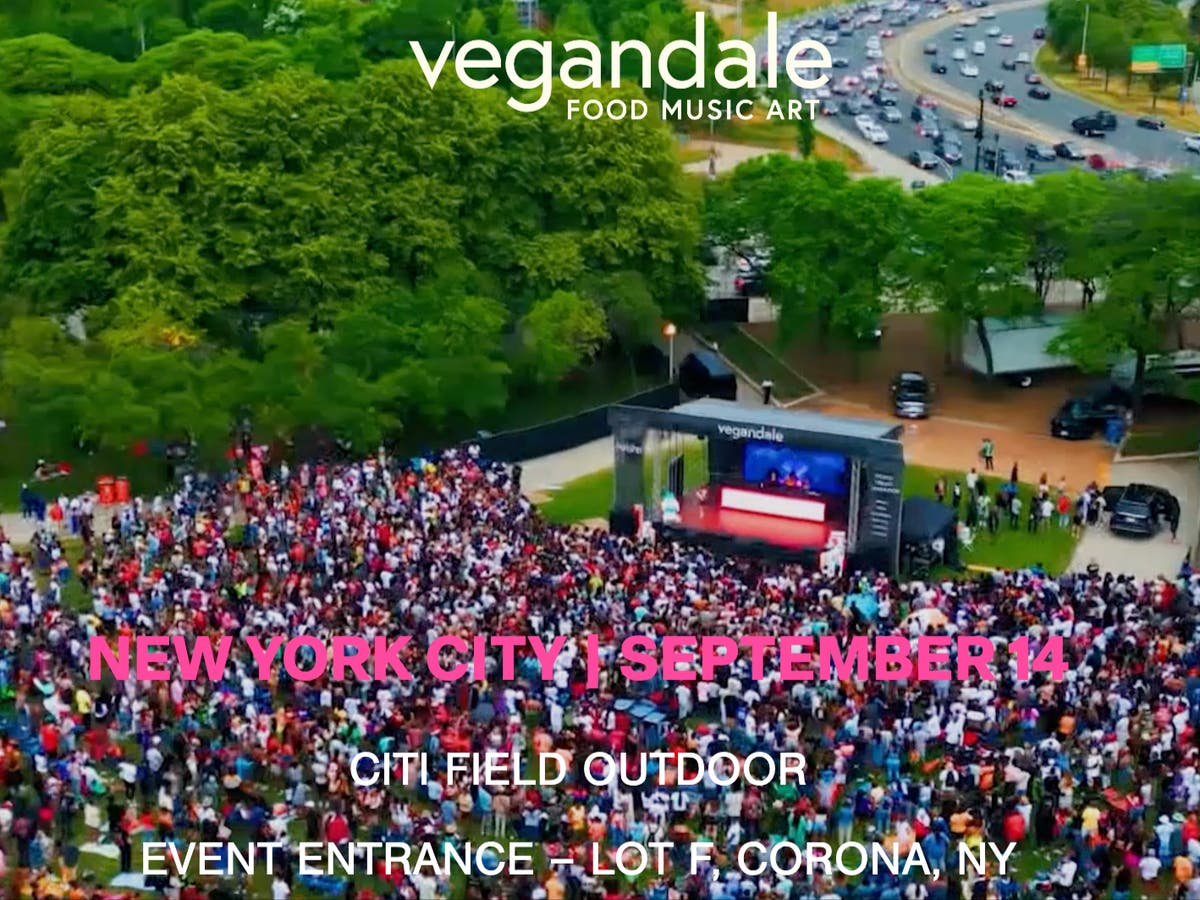As much of America baked in heat waves this week, the relatively poor New York borough of the Bronx suffered disproportionately. Reinaldo Morales, a 68-year-old military veteran, went to a seniors' community center with air conditioning because turning it on at home is too costly. "We live in a cement jungle," he said.
"It's nice that they have a cooling center like this. But the idea that we can't even afford to cool our home is outrageous," said Morales. Temperatures soared as high as 95 degrees Fahrenheit (35 degrees Celsius) this week in New York, far from the 118F (48C) that roasted Las Vegas.

But one image here stuck out: a swing bridge linking the Bronx and Manhattan got stuck in the half-open position for hours on Monday as the heat expanded the metal in its hydraulics. Boats pumped water to cool it off. The Bronx endures problems with poverty, health care and air pollution, and some of its neighborhoods suffered more than others in the heat because of a lack of trees to cool things off.
"We have limited shading so it does get very hot especially when the sun is at its peak," said Sandra Arroyo, program director of Casa Boricua, the seniors' center where Morales went to cool off. - 'You are suffocating' - Many residents of the Bronx are low-earning Latinos or African Americans, who say the heat-absorbing buildings that line street after street make life -- and even breathing -- difficult in the scorching, muggy New York summer. "You walk a block and you are suffocating," said Juan Lorenzo, a 72-year-old Dominican.
"You just get really tired," added Stephanie Rodriguez, a 21-year-old cashier watching her two-year-old son play in water spouts at the only large park in all of the borough. "We need more green spaces," said Arif Ullah, head of a community organization called South Bronx Unite. All along one bank of the Harlem River in the Bronx stand waste treatment facilities, a power plant and warehouses -- all sources of industry and thus, more heat.
Nearby sits a small shadeless kids park, under a series of highway overpasses. Ullah said racist urban policies have allowed communities like his to become urban heat islands that lead to health problems. "And really, it's a matter of life or death," he said.
Neighborhoods like Hunts Point and Mott Haven in the south of the Bronx have above-average rates of emergency room visits for respiratory problems attributable to pollution, according to a report issued in April by the New York city government, its first to address the issue of what is known as environmental justice. The city says around 350 people in New York die each year because of the heat or health problems made worse by it, and Black residents are hit twice as often as their white counterparts. The city says aggravating factors include a lack of air conditioning at home, a situation more common in the Bronx than New York's other boroughs.
Deadly heat waves in major cities in America and elsewhere have become more common because of climate change and things will only get worse, experts say. Jury deliberations began Friday in the high-profile trial of a powerful U.S.
senator charged with corruption after gold bars and hundreds of thousands of dollars in cash were found at his home. Robert Menendez, a 70-year-old Democrat from New Jersey, is accused of extortion, obstruction of justice and accepting bribes to perform favors for businessmen with connections to Egypt and Qatar. The most serious charges would carry up to 20 years in prison upon conviction in the trial which began in a New York court in May.
Menendez, who said in June he would run as an independent in November's election, is a career politician and formerly led the influential Senate Foreign Relations Committee until the charges were filed. In a raid on his New Jersey home, FBI agents were said to have found nearly $500,000 in cash hidden around the house, as well as gold bars worth around $150,000 and a luxury Mercedes-Benz convertible. His wife Nadine Menendez, to whom defense lawyers are seeking to shift the blame, has also been charged but will be tried separately in July as she is receiving treatment for breast cancer.
Prosecutors alleged Menendez put his power as a top US senator "up for sale." He is on trial with two of the businessmen he allegedly helped -- Egyptian-American Wael Hana and Fred Daibes, a real estate developer. All have pleaded not guilty.
A third businessman, insurance broker Jose Uribe, pleaded guilty to bribery charges in March and has been assisting investigators. Menendez is said to have interfered in the nomination of New Jersey's prosecutor in a bid to ensure that proceedings were dropped against Daibes and Uribe. He is also accused of accepting bribes to use his power and influence to enrich his co-conspirators and benefit the government of Egypt, including by helping Hana protect his monopoly on US exports of halal food products to the country.
CONTINUE READING Show less Meta said Friday it was lifting restrictions on US presidential candidate Donald Trump's Facebook and Instagram accounts, ending measures put in place after his supporters violently stormed the US Capitol in 2021. It said that "former President Trump , as the nominee of the Republican Party, will no longer be subject to the heightened suspension penalties." Trump's Facebook and Instagram accounts were suspended indefinitely a day after his supporters attacked the US Capitol on January 6, 2021, and it was determined he had praised people engaged in violence on social media.
His accounts were reinstated in February 2023 but with a threat of penalties for future breaches -- an additional restriction that Meta lifted on Friday. "In assessing our responsibility to allow political expression, we believe that the American people should be able to hear from the nominees for President on the same basis," Meta wrote in a blog post. It added that US presidential candidates "remain subject to the same Community Standards as all Facebook and Instagram users, including those policies designed to prevent hate speech and incitement to violence.
" Trump, the first former president to be convicted of a crime, was also banned from Twitter and YouTube. While those restrictions were later lifted last year, Trump now mainly communicates on his own social media platform, Truth Social. His Facebook profile, which has 34 million users, includes messages originally published on Truth Social as well as invitations to rallies and videos from his campaign.
CONTINUE READING Show less Iran's president-elect Masoud Pezeshkian said he looks forward to improved relations with European nations, even though he accused them of reneging on commitments to mitigate the impact of US sanctions. Pezeshkian won a runoff election against ultraconservative former nuclear negotiator Saeed Jalili last week. The 69-year-old has called for "constructive relations" with Western countries to "get Iran out of its isolation", and favours reviving the 2015 nuclear deal between Iran and global powers.
The United States unilaterally withdrew from the accord in 2018, reimposing sanctions, which led Iran to gradually reduce its commitment to the terms of the deal. The agreement aimed to curb nuclear activity, which Tehran maintains is for peaceful purposes. In an article published late Friday in the English-language Tehran Times newspaper, Pezeshkian said that after the US pullout from the 2015 deal, European nations committed to trying to salvage it and mitigate the impact of US sanctions.
"European countries have reneged on all these commitments," Pezeshkian wrote. "Despite these missteps, I look forward to engaging in constructive dialogue with European countries to set our relations on the right path, based on principles of mutual respect and equal footing." He said the two sides could explore "numerous areas of cooperation" if the Europeans "set aside self-arrogated moral supremacy coupled with manufactured crises that have plagued our relations for so long.
" European Union spokeswoman Nabila Massrali had earlier congratulated Pezeshkian on his election, saying the 27-member bloc was "ready to engage with the new government in line with EU policy of critical engagement". The death of ultraconservative president Ebrahim Raisi in a helicopter crash necessitated the July 6 election, which was not due until 2025. In the runoff, Pezeshkian secured about 54 percent of the vote against Jalili's roughly 44 percent, with a turnout of just under half of Iran's 61 million electorate.
Pezeshkian is a heart surgeon whose only previous government experience was as health minister about two decades ago. He is considered a "reformist" in Iran, and was the only candidate from that camp allowed to stand in the election, for which all contenders were approved by Iran's Guardian Council. - US must face 'reality' - Iran's supreme leader Ayatollah Ali Khamenei has the final say on all major policy issues in the country.
Under the hard-won 2015 deal, Iran agreed to freeze its nuclear programme in return for the lifting of the crippling international sanctions. After the US withdrawal and reimposition of sanctions, Iran gradually began reneging on its own commitments to the agreement. "The United States also needs to recognise the reality and understand, once and for all, that Iran does not -- and will not -- respond to pressure," said Pezeshkian, who is to be sworn in on July 30.
The parties to the 2015 deal with Iran saw it as the best way to stop the Islamic republic from building a nuclear bomb -– a goal Tehran has always denied. European Union members France and Germany were also party to the deal, along with Britain, China and Russia. The European nations tried to salvage it, but Iran accused them of perceived inaction.
Under the late president Raisi, Iran sought improved relations with China and Russia while mending ties with Arab neighbours, chiefly Saudi Arabia, to avert deeper isolation. In his article, Pezeshkian described Russia as a "valued strategic ally" and said he looked forward "to collaborating more extensively" with China. He said Iran was keen to cooperate with its Arab neighbours and Turkey to deepen economic and trade relations and "tackle common challenges".
CONTINUE READING Show less.



















